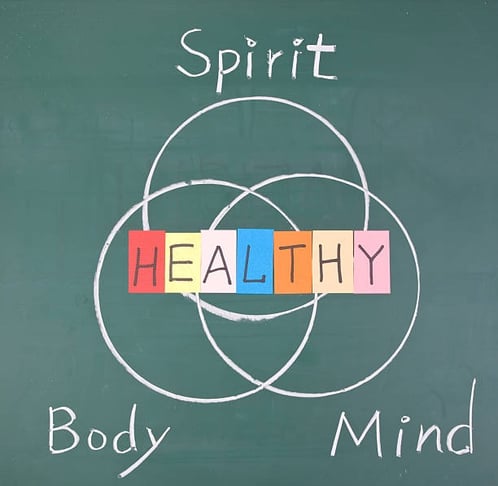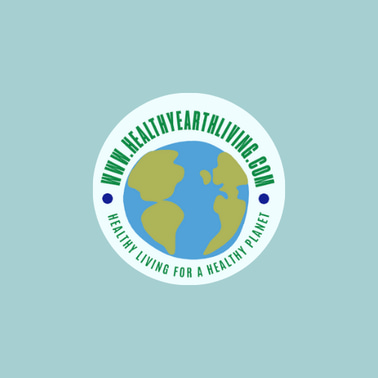Nourish Your Heart: 5 Holistic Approaches to Cardiovascular Health
Want to keep your heart strong and healthy naturally? Discover a holistic approach to cardiovascular health with heart-healthy foods, stress management tips, and lifestyle habits that support your well-being because a happy heart means a healthier you!
HOMEMINDBODY
Janelle Salo RN
2/16/202511 min read


Key Points:
Eat for Your Heart – A plant-based diet for heart health rich in whole foods, antioxidants, and healthy fats can naturally support your cardiovascular system.
Manage Stress & Emotions – Practices like meditation, deep breathing, and gratitude can help lower stress and improve heart health naturally.
Move & Live Mindfully – Daily exercise, quality sleep, and avoiding toxins are critical holistic lifestyle tips for a healthy heart.


Warm-up
Why heart health matters in overall well-being
Your heart is the engine that keeps your body running, pumping oxygen and nutrients to every cell. (1) When your heart is strong and healthy, you have more energy, think more clearly, and feel better overall. But when it’s not working well, it can lead to serious problems like high blood pressure, fatigue, or even heart disease. (2) The good news? Taking care of your heart isn’t just about avoiding illness; it’s about living your best life! Eating nourishing foods, staying active, managing stress, and getting good sleep all help your heart do its job so you can feel great every day.
The importance of a holistic approach to preventing heart disease
Taking a holistic approach to preventing heart disease means looking at the big picture; your diet, lifestyle, emotions, and even your environment all play a role in heart health. It’s not just about avoiding unhealthy foods or exercising occasionally; it’s about creating daily habits that support your whole body. Eating a plant-based diet for heart health, managing stress, staying active, and getting enough sleep can help lower your risk of heart disease naturally. By caring for your mind and body together, you’re not just protecting your heart but improving your energy, mood, and overall well-being.
Natural ways to support cardiovascular health
Supporting your heart naturally is easier than you might think! Simple daily habits can make a big difference in keeping your cardiovascular system strong. Eating a plant-based diet for heart health with plenty of fruits, veggies, whole grains, and healthy fats helps lower inflammation and support circulation. Regular movement like walking, yoga, or dancing keeps your heart pumping efficiently. Managing stress with deep breathing, meditation, or time in nature also plays a huge role in heart health. And don’t forget quality sleep! Your heart needs rest just as much as your muscles do. By making small, natural changes, you can keep your heart happy and healthy for life.
1. Nutrition for a Healthy Heart
Heart-healthy foods and lifestyle choices
A plant-based diet for heart health is one of the best ways to protect your heart naturally. Whole, plant-based foods like fruits, vegetables, whole grains, nuts, and seeds are packed with fiber, antioxidants, and healthy fats that help lower cholesterol, reduce inflammation, and improve circulation. (3) Unlike processed or animal-based foods, which can contribute to high blood pressure and heart disease, (4) plant-based meals support a strong, efficient cardiovascular system. Plus, eating more plants isn’t just great for your heart; it boosts energy, improves digestion, and promotes overall well-being. (5) Small swaps, like choosing lentils over meat or adding more leafy greens to your plate, can go a long way toward a healthier heart.
The best sources of omega-3s, fiber, and antioxidants
Getting the proper nutrients is key to keeping your heart strong, and omega-3s, fiber, and antioxidants play a big role in cardiovascular health.(6)
Omega-3s help reduce inflammation and support healthy blood flow. Great plant-based sources include flaxseeds, chia seeds, walnuts, hemp seeds, and algae-based supplements. (7)
Fiber lowers cholesterol and keeps your arteries clear. (8) Load up on oats, lentils, beans, quinoa, berries, and leafy greens to boost your intake.
Antioxidants protect your heart by fighting free radicals and reducing oxidative stress. (9) You’ll find them in colorful fruits and veggies like blueberries, spinach, beets, red peppers, and even dark chocolate!
Adding these powerhouse foods to your diet gives your heart the nutrients it needs to stay healthy and strong!
Best herbs for a plant-based heart-healthy diet
Adding heart-healthy herbs to your plant-based diet is a simple and natural way to support cardiovascular health. These powerful plants help reduce inflammation, improve circulation, and support overall heart function. (10) Here are some of the best:
Garlic – Lowers blood pressure and cholesterol while improving circulation.(11)
Hawthorn – Strengthens the heart muscle and helps regulate blood pressure.(12)
Turmeric – Packed with curcumin, which reduces inflammation and supports blood vessel and gut health. (13)
Cinnamon – Helps lower blood sugar and improve cholesterol levels. (14)
Ginger – Aids circulation and gut health, reduces blood pressure and supports heart function. (15)
Rosemary – Contains antioxidants that help protect the heart from oxidative stress. (16)
Cayenne Pepper – Boosts circulation and may help lower blood pressure. (17)
Sprinkling these herbs into your meals, sipping them as teas, or taking them as supplements can be an easy (and tasty!) way to keep your heart happy and healthy.
2. Lifestyle Habits That Support Cardiovascular Health
Daily holistic lifestyle tips for a healthy heart
Keeping your heart healthy doesn’t have to be complicated! Here are some simple daily holistic lifestyle tips for a healthy heart:
Eat heart-healthy foods – Focus on a plant-based diet filled with whole grains, fruits, vegetables, nuts, seeds, and healthy fats like avocado and olive oil. These foods help reduce cholesterol and inflammation.
Stay active – Aim for at least 30 minutes of movement a day. Whether walking, yoga, or dancing, regular physical activity strengthens your heart and boosts circulation.
Manage stress – Practice relaxation techniques like deep breathing, meditation, or mindfulness. Managing stress is vital for heart health, as chronic stress can lead to high blood pressure.
Get quality sleep – Aim for 7-9 hours of restful sleep each night. Sleep helps regulate your hormones and reduces inflammation, which is critical for heart health. (18)
Stay hydrated – Drink plenty of water throughout the day. Hydration helps your heart pump blood more effectively and keeps your arteries healthy. (19)
Limit toxins – Avoid smoking, excessive alcohol, and processed foods that can harm your cardiovascular system. (20)
Practice gratitude – Reflecting on what you’re grateful for each day can help reduce stress and improve overall heart health. (21)
By making small, consistent changes like these, you’re creating habits supporting your heart and overall well-being.
Importance of regular physical activity
Regular physical activity is one of the most powerful things you can do for your heart. Activities like yoga, walking, or light jogging get your blood pumping, improving circulation and strengthening your heart muscle. Moving your body regularly helps lower blood pressure, reduce cholesterol, and manage weight all of which are important for heart health. (22)
Yoga is especially great for heart health because it combines movement with deep breathing, which helps manage stress and promotes relaxation. This can lead to lower heart rates and better blood flow. Walking is another easy, low-impact way to keep your heart healthy. Just 30 minutes a day can reduce the risk of heart disease, boost your mood, and improve overall cardiovascular health.
Making physical activity a regular part of your daily routine keeps your heart strong, reduces inflammation, and boosts your overall energy. Plus, it’s a great way to feel better in both body and mind.
The impact of quality sleep on heart function
Getting quality sleep is critical for heart health. When you sleep, your body repairs and regenerates, and your heart gets a well-deserved break. During deep sleep, blood pressure drops, and heart rate slows down, allowing your heart to rest and recover. (23) Consistently getting 7-9 hours of good sleep each night helps keep your blood pressure in check, reduces inflammation, and improves circulation, all vital for maintaining a healthy heart.
On the other hand, lack of sleep or poor-quality sleep can lead to higher blood pressure, increased stress hormones, and inflammation, all of which can negatively impact heart function over time. (24) So, creating a calming bedtime routine, limiting screen time, and aiming for consistent sleep patterns can help ensure your heart stays happy and healthy.


3. The Mind-Body Connection to Heart Wellness
The role of stress management for better heart health
Stress management plays a huge role in keeping your heart healthy. When you’re stressed, your body releases hormones like adrenaline and cortisol, which can cause your heart rate and blood pressure to spike. (25) Over time, chronic stress can increase your risk of heart disease, raise blood pressure, and contribute to unhealthy habits like poor eating or lack of exercise.
Taking time each day to manage stress through practices like meditation, deep breathing, or even simple mindfulness can lower these harmful effects. Activities like yoga also help calm your mind and body, promoting relaxation and better heart health. Spending time in nature, journaling, or even chatting with a friend can help reduce stress and support your heart’s function.
When you regularly manage stress, you’re not only helping your heart, but you’re also boosting your overall well-being and quality of life.
How meditation, deep breathing, and mindfulness improve circulation
Here's how they work:
Meditation helps calm the nervous system by activating the parasympathetic nervous system, which lowers stress hormones like cortisol. (26) This relaxation reduces blood pressure and helps improve blood flow, easing the pressure on your heart and arteries.
Deep breathing increases oxygen intake, helping blood flow freely throughout your body. It also promotes relaxation, which can lower your heart rate and help widen blood vessels, improving circulation. (27)
Mindfulness involves staying present and focused, which can help you manage stress better. By reducing emotional tension and anxiety, mindfulness lowers the stress response, leading to healthier blood flow and better heart function. (28)
Practicing these techniques regularly can help reduce inflammation, improve blood pressure, and support overall cardiovascular health, making them simple yet effective ways to keep your heart and circulation in top shape.
4. Avoiding Toxins & Harmful Habits
Processed foods, smoking, and excess alcohol are major contributors to poor heart health, and each of them can negatively affect your cardiovascular system in different ways.
Processed foods often contain unhealthy fats, added sugars, and high levels of sodium, which can increase blood pressure, raise cholesterol levels, and contribute to obesity and cancer. These factors all put added stress on your heart and arteries, increasing the risk of heart disease. (30)
Smoking is one of the most harmful things you can do for your heart. It damages blood vessels, raises blood pressure, and decreases oxygen flow to your heart, making it harder for your cardiovascular system to function properly. Smokers are also at a higher risk of blood clots and heart attacks. (31)
Excess alcohol can raise blood pressure and lead to heart rhythm problems (arrhythmias). Over time, heavy drinking can weaken the heart muscle and increase the risk of heart failure. (32)
Making healthy choices, like cutting back on processed foods, quitting smoking, and drinking alcohol in moderation, can greatly reduce your risk of heart disease and support overall heart health.
How environmental toxins affect holistic heart health
You might not realize it, but the air we breathe and the chemicals in our environment can affect your heart. Things like pollution, chemicals in cleaning products, and even pesticides can cause inflammation and raise your risk of heart disease. These toxins can damage your blood vessels and make it harder for your heart to pump blood efficiently. (33)
The good news is you can take steps to protect your heart. Reducing exposure to harmful chemicals, spending time in nature, and choosing natural products can all help your heart stay healthy. By being mindful of the environment, you’re also caring for your body!
Natural detox strategies for cardiovascular wellness
Detoxing doesn’t mean extreme cleanses or fancy products. There are simple, natural ways to help your body flush out toxins and keep your heart healthy! Here are some easy tips:
Drink plenty of water – The average adult should drink between 2-4 liters of water a day. Staying hydrated helps your body remove toxins and keeps your blood flowing smoothly, which is excellent for your heart. (34)
Eat antioxidant-rich foods – Foods like berries, leafy greens, and citrus fruits are packed with antioxidants that help protect your heart and blood vessels from damage. (9)
Move your body – Regular exercise helps your body sweat out toxins and improves circulation. It’s a win-win for your heart! (35)
Get enough fiber – Fiber-rich foods like oats, beans, and whole grains help your gut health by removing waste from your system, lowering cholesterol and keeping your arteries clear. (36)
Relax and reduce stress – Chronic stress can harm your heart, so taking time to relax through meditation, yoga, or simply spending time outdoors can support your heart health and help detox your mind. (37)
These small, natural steps can help your heart stay in top shape and reduce the burden of toxins on your body.
5. How to Improve Heart Health Naturally
Supplements and superfoods that enhance heart function
Adding the right supplements and superfoods to your diet can help your heart stay strong and healthy. Here are some top choices to support your cardiovascular system:
Omega-3 Fatty Acids – Found in plant-based options like flaxseeds and chia seeds, omega-3s help reduce inflammation, lower cholesterol, and improve heart function. (38)
Coenzyme Q10 (CoQ10) – This antioxidant is vital for heart health, helping your cells produce energy and protect your heart from oxidative stress. (39)
Magnesium – This mineral helps regulate blood pressure and support overall heart function; (40) it also helps you achieve a better night's sleep! You can get magnesium from foods like leafy greens, nuts, and seeds.
Berries – Packed with antioxidants, vitamins, and fiber, berries like blueberries, strawberries, and raspberries help reduce inflammation and improve blood vessel function. (9)
Beets – High in nitrates, can help lower blood pressure and improve circulation by relaxing and widening blood vessels. (41)
Adding these supplements and superfoods to your diet can give your heart a natural boost and help you maintain cardiovascular health.
Creating a personalized plan for long-term heart wellness
Taking care of your heart is a lifelong commitment, and creating a personalized plan can help you stay on track. Here’s how to build a heart-healthy lifestyle that works for you:
Set Clear Goals – Think about what you want to achieve. Do you want to improve your cholesterol, lower your blood pressure, or increase your exercise? Set specific, realistic goals that are easy to measure.
Choose Heart-Healthy Foods – Fill your plate with a variety of whole plant-based foods like fruits, vegetables, whole grains, nuts, and seeds. Keep processed foods, added sugars, and unhealthy fats to a minimum.
Create a Daily Exercise Routine – Choose activities you enjoy and aim for at least 30 minutes a day of movement, whether walking, yoga, swimming, or dancing. Find ways to stay active consistently.
Manage Stress – Find ways to relax and de-stress every day. Whether through meditation, deep breathing, journaling, or spending time in nature, managing stress is key for good heart health.
Get Enough Sleep – Aim for 7-9 hours of restful sleep each night. Create a bedtime routine that helps you wind down, and try to keep your sleep schedule consistent.
Check-in Regularly – Keep track of your progress by checking in with your heart health goals regularly. Monitor your weight, blood pressure, cholesterol levels, and how you’re feeling overall.
Make Adjustments – Life happens, and things don’t always go as planned. If something isn’t working, adjust your approach. Flexibility is important, whether it’s a change in your diet or adding a new type of exercise.
By building a heart wellness plan that fits your lifestyle, you’re giving yourself the best chance to maintain a healthy heart for years to come. Plus, with small, consistent changes, you’ll feel stronger, happier, and more energized!
Final Thought
Encouragement to take small, sustainable steps toward heart health
Taking care of your heart doesn’t have to be overwhelming. The key is to start small and make sustainable changes that you can stick with over time. It’s all about progress, not perfection!
Start by adding one heart-healthy habit at a time. Swapping a meat-based dish for a plant-based one, taking a short walk after dinner. As you get comfortable with these changes, add another step, like practicing deep breathing or getting an extra hour of sleep.
Remember, it’s not about making big leaps all at once; it’s about those small, consistent steps that will add up to lasting heart health. Every positive choice you make is a win for your heart; over time, these habits will become second nature.
Be patient with yourself, and celebrate each small success. You’re doing great! Your heart will thank you for every effort you make.














© 2025 Salo Content Writing LLC, all rights reserved
Join the Movement for a Healthier Planet! 🌿
Subscribe now and get your FREE Sustainable Living Checklist! Plus, enjoy weekly articles and delicious plant-based recipes straight to your inbox. Let’s make sustainable living simple and inspiring, one email at a time! 💚✨
